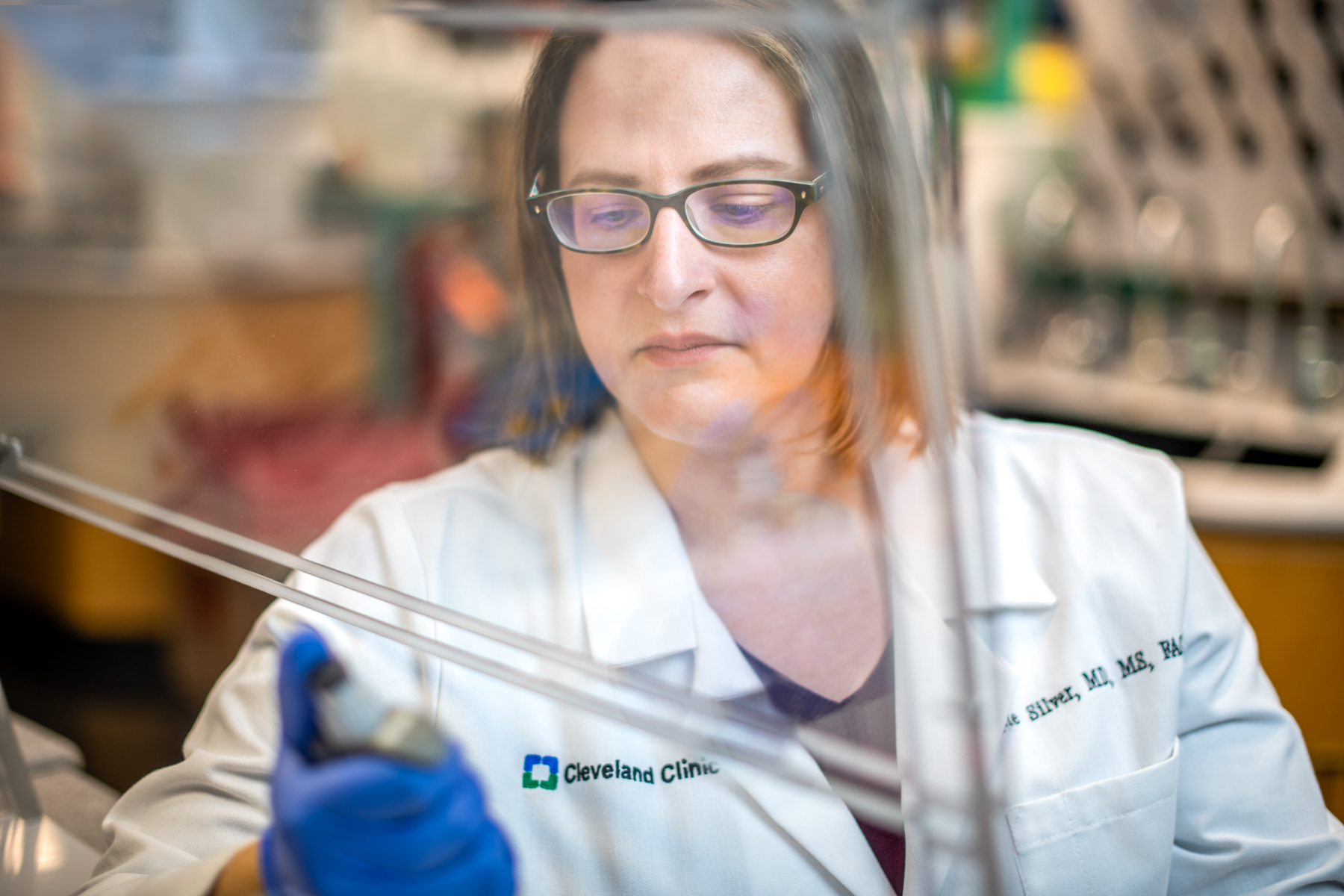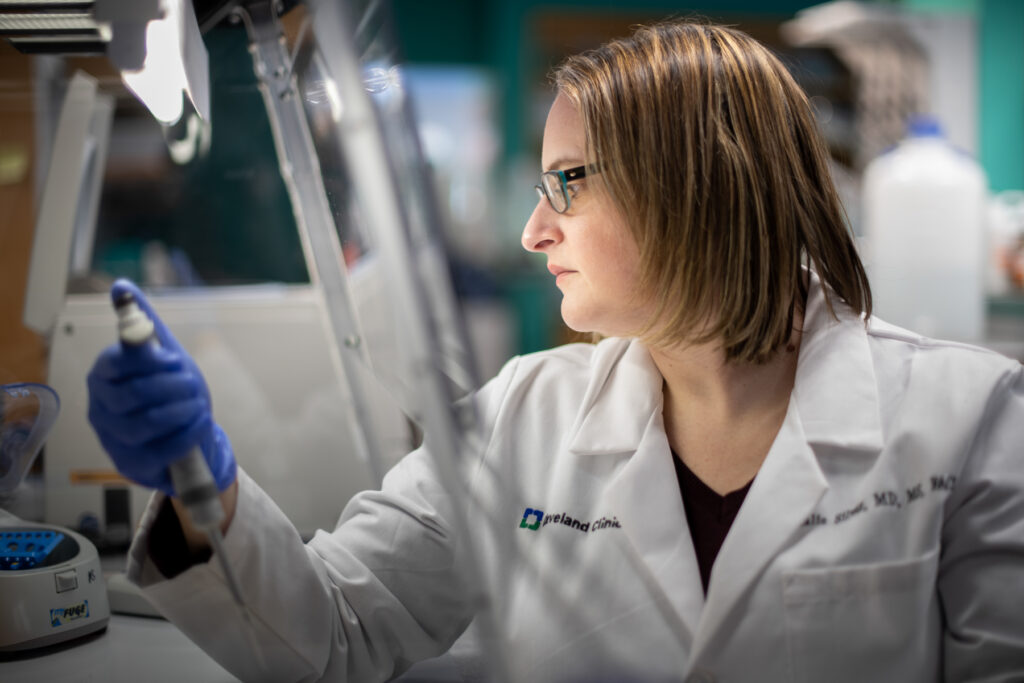Collaborative Grants Bring Brightest Minds Together for Cancer Research

VeloSano is Cleveland Clinic’s year-round fundraising movement for cancer research, made possible by the collective efforts of Riders in the annual Bike to Cure event, Trike & Bike Junior Riders, Virtual Fundraisers, Partners, Volunteers, Donors and Supporters.
Thanks to a record-breaking $14.3 million raised in 2023, there are numerous innovative cancer research projects underway through VeloSano-funded grants.
In addition to 24 VeloSano Pilot Grants and 15 Trainee Research Grants, the efforts of our VeloSano community have also funded two VeloSano Collaborative grants.
VeloSano Collaborative Grants are $200,000 awarded over a two-year period and require Cleveland Clinic researchers to partner with one or more outside institutions. The idea is to expand Cleveland Clinic’s cancer research potential by bringing the community’s brightest minds together for a cure.
Read on to learn more about this year’s grantees:
The Project: Collaborative effort to tackle cisplatin-induced hearing loss
The Team: Jianjun Zhao, MD, PhD- Cleveland Clinic; Qingyin Zheng- Case Western Reserve (Co-Investigator: Dr. Tyler Alban, Cleveland Clinic)
The Idea: Cisplatin is a powerful medicine used to fight cancer, but it has a side effect: it can damage the inner ear, leading to hearing loss. Researchers believe this damage may occur when cisplatin interacts with a specific protein located in the cells in the ear. This protein plays a key role when cells are stressed or damaged, especially by treatments like cisplatin. The research project aims to figure out exactly how cisplatin affects this protein, giving insight into why this medicine can lead to hearing loss.
The Need: The need for this project comes from a pressing problem: about 25% of patients treated with cisplatin end up suffering from hearing loss. This is a significant issue because, so far, there is no effective way to prevent or treat this side effect.
The Goal: Understanding how cisplatin causes hearing loss could lead to new treatments that protect the ears without reducing the effectiveness of the cancer treatment. It is crucial because it would improve the quality of life for cancer survivors, particularly young ones who have a long life ahead of them following their cancer treatments.
The Project: Modulating intratumoral bacteria in head and neck cancer
The Team: Natalie Silver, MD, MS, FACS, Christina Farr, Case Western Reserve (Co-Investigators: Gina Lewin, PhD- Case Western University; Emily Zabor, PhD, Cleveland Clinic)

The idea: Based on experiments from their laboratory, the team believes the number of bacteria within oral cancer patient tumors, more so than the exact kind of bacteria, can determine treatment response. They hope that using antibiotics to lower the amount of tumor bacteria in patients with oral cancer will enable their immune systems to better fight the cancer.
The need: Head and neck squamous cell carcinoma (HNSCC) is the sixth most common type of cancer worldwide. Many of the standard treatments for advanced stages of this cancer are ineffective. While there is hope for patients through treatments such as immunotherapy, these treatments do not work well for everyone, with less than 20% of patients seeing positive results. One reason for this is the environment around the tumor, which can stop treatments from working effectively. Overcoming this obstacle is a big challenge for doctors treating HNSCC patients. Therefore, there is an urgent need to understand how we can make patients more sensitive to available therapies.
The goal: The researchers plan to conduct a clinical trial for surgical patients with oral cancer in which they receive treatment with oral antibiotics and oral rinses. They plan to measure the change in bacterial abundance using new ways of testing invented by their laboratory. These tests may be used in the clinic in the future to determine the bacterial status of patient tumors to see if administering antibiotics can help aid traditional and immune-based therapies fight the cancer more effectively so that these patients have better outcomes.


